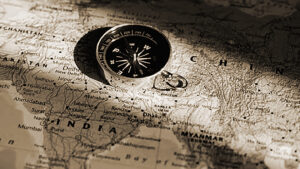THE WRITE LINE By Manishankar Prasad

Pune, July 20, 2020: The breeze that blows across the red deserts of the Arab world aren’t only about monarchs, oases, sheikhdoms and oil wars, as stereotypical histories of the region would have us believe. Hardly ever detected on the radar of mainstream IR studies, there is also an Arab world that has a distinct history of ‘socialism’.
That brush with socialism isn’t prominent enough to be called a legacy. But despite being patchy and temporal, the kingdoms out there have had a taste of socialist ideology on quite a few occasions that need more mention on the pages of mainstream history.
Also Read: Araria Case Shows How Gender-Insensitive India Still Is
TELL-TALE EXAMPLES
From the nationalisation of Iran’s oil assets by Mohammad Mossadeq, to the Dhofar revolution in Oman, to Gamal Nasser’s historic land reforms in Egypt, to the long-drawn Arab Spring movement, to South Yemen going behind the Iron Curtain, to the culture of the Gulf states controlling vital assets – socialism’s footprints are all over the place in the land of kings, kingdoms and kingmakers.
Socialist thinking, for example, has been a major presence in the war-torn, resource-scare country of Yemen as well as in Egypt, Iraq and Syria. In pre-federation UAE (United Arab Emirates), the ruler of Sharjah had entertained thoughts of aligning with Nasserite Egypt, which led the British to punish the ruler by cherry-picking Dubai as their preferred ‘free port’ in the region.
Also Read: ‘44 Years From Now, Human Population Will Start Shrinking’
The Cold War, which saw post-WWII America lock horns with Soviet might for over four decades, was a reality that the Arab world was not immune to, even though large parts of it dwell in the panopticon of faith and conservatism.
Across West Asia in particular, the idea of socialism was akin to being ‘anti-colonial’ as the oil-rich region was under colonial oversight (read: firm grip) – with the British running the show from Aden to Kuwait City, and the French holding the reins from Damascus to Beirut.
THE CASE OF SOUTH YEMEN
There was actually a socialist state in the southern Gulf – in South Yemen – from 1967 to 1990, which is chronicled by scholar Fred Halliday in his works. This state was indeed behind the Iron Curtain after the British left Aden in 1967.
The spill-over from South Yemen had resulted in a full-fledged insurgency in Dhofar that raged from the mid-1960s to 1976. Dhofar’s revolution against the Omani sultanate is well documented, but what is relatively less discussed is how exactly the Soviets had a finger in the pie. The British eventually took firmer control of the sultanate and smothered the insurgency. The Iranian Shah, too, played an important role in quelling the uprising, sending in his troops.
Also Read: Pandemic Turns India Into A New Hunger Hotspot
But even though the socialism-communism-Marxism tone of the famed Dhofar revolution is chronicled by writers such as Abdel Razzaq Takriti, mainstream Gulf history doesn’t venture beyond palaces, crude oil exploits and Gulf wars. There are hardly any ground-up narratives that shed light on the forays that socialism has made in the region.
The Iran example from the 1950s is testimony to the reach of socialist thinking deep into the Persian Gulf’s heartland. When Prime Minister Mossadeq announced that his administration was nationalising oil assets that had been under overseas control, the writing was on the wall.
One, socialism (although tactically unacknowledged) had formally arrived in modern-day Persia. Two, overseas stakeholders in Iran’s oil industry wouldn’t take things lying down. It turned out they didn’t. Iran’s honeymoon with socialism didn’t last long as we all know how the Western intelligence orchestrated a coup in 1953, replacing the socialist leader Mossadeq with the Shah.
Also Read: They’re Charred To Death, So That You Can Have Your Dinner
Iran’s 1979 Revolution was yet another milestone that saw a trail of socialism in the country. Although the revolution saw clerics led by Ayatollah Khomeini storm to power by sweeping the Shah aside, historians point out that the whole churn was an unusual cocktail of Shia orthodoxy’s ambitions and the Soviet brand of socialism. The key ideological theorist who inspired many of the 1979 revolutionaries was an academic called Ali Shariati, who fused revolutionary poetry, Shia theology and French Marxism to create fodder for a revolt that echoed in Iran’s bazaars and the mazaars.
A more recent case for socialism finding its way into the region was the Arab Spring movement, which saw massive mass protests jolt leaderships. Speculation still rages on whether some western powers perhaps had a hand in helping the Arab Spring protesters. We don’t know that for sure. But what is certain is that the passionate street protests and their intended effect on the governments they rocked had socialism written all over them.
Also Read: Investigation Exposes Dubai As Global Capital of Smuggled Gold
THE PARADOX
Today, the Gulf region is replete with Malayalis, who hail from the Indian state of Kerala across the Arabian Sea. Yet, the paradox is that not many of them are fully aware of the trail of socialism in the desert-land even though Kerala is known to be literally synonymous with socialism and socialist politics.
Whether mainstream history someday acknowledges the role of socialism in the Arab world or not, the winds of socialism will keep blowing across the red deserts every now and then.
(Manishankar Prasad is an independent researcher, writer, consultant, and an expert in migration studies. He lives in Pune, India. Views expressed in the article are entirely the columnist’s personal opinion.)











